“Health is wealth”. Women and children in the desert and rural areas face many health problems. The Health Care Project (HCP)
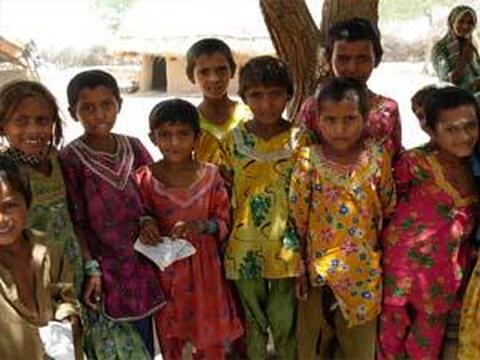
raises awareness about health issues, e.g. by stressing the importance of clean drinking water, and promoting the use of smokeless stoves to help reduce eye-infections. The HCP also provides basic health training for children. It also trains local women in midwifery, and health care for mothers and children. Other primary health care issues are covered too, such as Family Planning, awareness about HIV/AIDS, plus the provision of on-the-spot medical check-ups and treatment, and help in accessing additional medical facilities if these are needed. The use of mother tongue ensures that all people, including illiterate monolingual men and women, are able to fully understand what is being taught. They can then apply what is learnt in their own situations.
The Health Care Project encompasses the following activities:
Health Awareness
Provision of health information
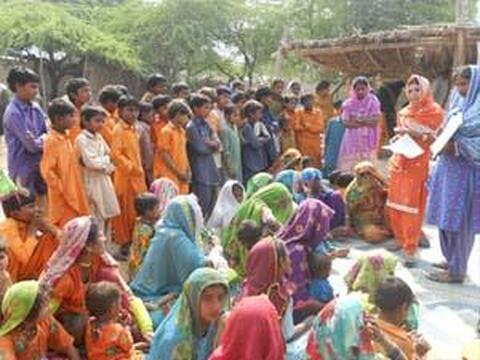
The Health Care team regularly visits villages to discuss and provide information on issues such as family planning, and the prevention and treatment of common diseases such as water-borne diseases and stomach infections. It organizes the information sessions on Safe Motherhood, pre-natal care and post-natal care. As is appropriate in the local culture, female staff teaches the ladies, and male staff teach the men.
Water Filteration
Accessing clean water
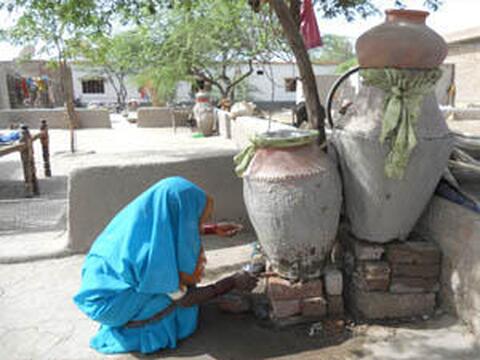
Many villages do not have access to clean drinking water. The Health Care team promotes the use of filter systems which use appropriate technology and local materials to provide families with clean drinking water. This enables villagers to be able to access schemes run by local NGOs which provide subsidized materials and practical training for making and maintaining these water filtration systems.
Smokeless Stoves
Improving health and the environment
The smoke from traditional mud stoves can cause damage to women’s eyes and lungs, as they must sit close to the fire to cook. These smokeless stoves have been locally designed and can be easily made using readily available materials. They not only protect women’s eyes and lungs from the damaging effect of smoke, but are also fuel-efficient. By using less firewood, they save women time and protect the environment. The Health Care Project provides local women with the necessary materials and practical training to enable them to make these stoves themselves.
Children's Health Education
Keeping children healthy
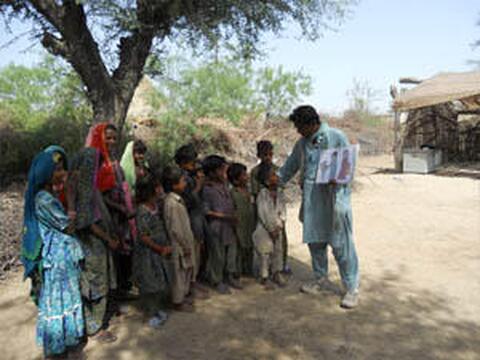
The Health Care Project provides village women with information about a child’s body and how to keep it clean, and also how to prevent the spread of common childhood diseases. The Health Care team use pictures and posters, together with oral explanations in mother tongue, to ensure understanding and increase self-motivation. The Health Care Project has also produced a Parkari translation of the “Child to Child” basic health course, which is taught as part of the mother tongue curriculum in PLP’s Multilingual Primary Schools. Teaching children about health issues from an early age should ensure that, when they grow up, they will have both the knowledge and motivation to provide a healthy environment for their families. These activities ensure that children are aware of children’s health issues, which will help them when they become parents. This is especially important for the girls, who are the mothers of the future.
Training of Midwives and Basic Healthcare Workers
Improving maternity care
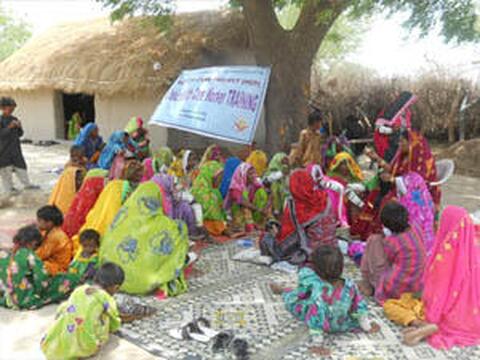
Most Parkari women live in remote villages without access to trained midwives or medical care. The Health Care Project provides community based training courses for village women in midwifery, mother and child health care, and primary health care. Once trained, these village women provide the community with local access to improved basic health care, including antenatal and postnatal advice, and assistance in childbirth from a trained midwife.
Family Planning
Practising family planning
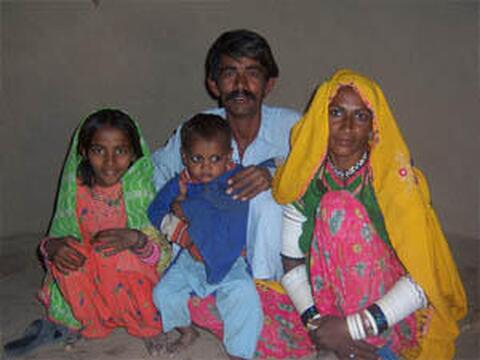
The Health Care team provides information and advice about appropriate Family Planning methods. The Health Care team also provides information and assistance to rural women to enable them to access appropriate medical intervention, such as tubal-ligation operations.
HIV/AIDS
Being knowledgeable about HIV/AIDS
The Health Care team provides information in mother tongue about HIV/AIDS, e.g. how it spreads, and how to avoid becoming infected.
On-the-spot Medical Check-ups and treatment
Health checks
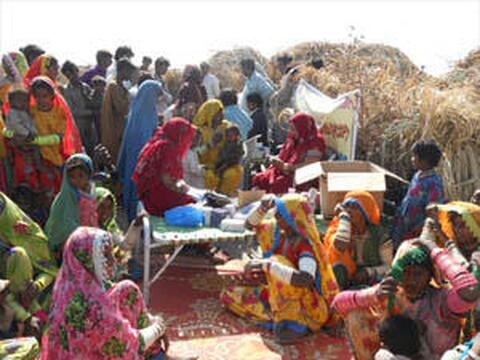
The Health Care team also provides on-the-spot medical check-ups and treatment, by holding clinics and dispensing. medicines as they travel from village to village.
Detoxifier Scheme
Recovery from snake bites
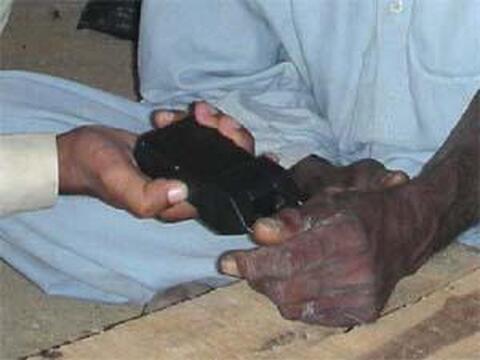
This scheme provides battery-powered detoxifiers, which neutralize the effects of venom, by giving brief but powerful electric shocks to the site of the original bite and to the whole area that is swollen. These detoxifiers work for a wide range of venoms, and provide victims of snake bites and scorpion stings with free and effective treatment, which begins to ease both the pain and the swelling within a few minutes. I
n the desert area, where men, women and children are often bitten by poisonous snakes, each of the PLP schools has been provided with a detoxifier, and all the teachers and school supervisors have been trained in how to use them. After treatment, patients are encouraged to make a donation, which goes directly into school funds. Detoxifiers have already been used to treat over 140 victims of snake-bite, with a 100% success rate.
]]]]> /*-->*/